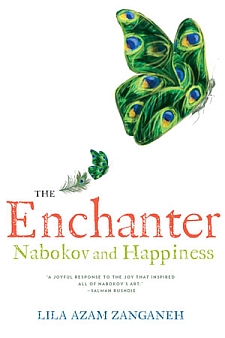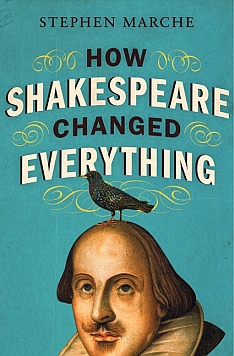- HOME
- INTRO TO THE FORUM
- USE AND MISUSE
- BADLY WRITTEN, BADLY SPOKEN
- GETTING
TO KNOW ENGLISH - PREPARING FOR ENGLISH PROFICIENCY TESTS
- GOING DEEPER INTO ENGLISH
- YOU ASKED ME THIS QUESTION
- EDUCATION AND TEACHING FORUM
- ADVICE AND DISSENT
- MY MEDIA ENGLISH WATCH
- STUDENTS' SOUNDING BOARD
- LANGUAGE HUMOR AT ITS FINEST
- THE LOUNGE
- NOTABLE WORKS BY OUR VERY OWN
- ESSAYS BY JOSE CARILLO
- Long Noun Forms Make Sentences Exasperatingly Difficult To Grasp
- Good Conversationalists Phrase Their Tag Questions With Finesse
- The Pronoun “None” Can Mean Either “Not One” Or “Not Any”
- A Rather Curious State Of Affairs In The Grammar Of “Do”-Questions
- Why I Consistently Use The Serial Comma
- Misuse Of “Lie” And “Lay” Punctures Many Writers’ Command Of English
- ABOUT JOSE CARILLO
- READINGS ABOUT LANGUAGE
- TIME OUT FROM ENGLISH GRAMMAR
- NEWS AND COMMENTARY
- BOOKSHOP
- ARCHIVES
READINGS IN LANGUAGE
This section features links to interesting, instructive, or thought-provoking readings about the English language. The selections could be anywhere from light and humorous to serious and scholarly, and they range widely from the reading, writing, listening, and speaking disciplines to the teaching and learning of English.
A loving, at times kooky homage to a master English prose stylist
Who is the serious reader of literature who, on first encounter, had not marveled at Vladimir Nabokov’s iridescent English prose? Perhaps few who had read Lolita, Nabokov’s novel about an aging professor’s obsession and dalliance with a prepubescent nymphet, would make that claim. For Nabokov’s delicious, infectious wordplay has that magical power to totally engage the senses, and in the case of Lila Azam Zanganeh, author of The Enchanter: Nabokov and Happiness (Norton, 228 pages), it’s clear that Nabokov’s prose had put her in such a spell as to make her a passionate, faithful disciple for life.

The Enchanter, in fact, is Zanganeh’s rapturous devotional to the famous Russian-American émigré novelist, a kooky pastiche of her unending amazement at his thesis of what constitutes happiness, which she describes as “a singular way of seeing, marveling, and grasping, in other words, of netting the light particles around us.” Of the book, Alexander Theroux says in “The Trouble With Ardor,” a review in the May 4, 2011 issue of Bookshelf: “The Enchanter is essentially the retrospective account of a young woman’s discovery of a writer’s talent to enthrall, her celebration of a man who ‘sends planets spinning’…One has the cringing sense [though] that Ms. Zanganeh is trying to imitate Nabokov himself, who was given to minutely observed descriptive prose and who opened his famous novel [Lolita] with phonetic byplay.”
Indeed, Zangeneh herself, who was born in Paris to Iranian parents, says of The Enchanter: “It [is] a curious combination of fiction and essay, of invention and interpretation. It posited that Nabokov was the great writer of happiness. A notion that, over the years, almost invariably turned small talk into opinionated tirades. Happiness, evidently, did not keep good company with nymphets and nympholepts.”
Read Lila Azam Zanganeh’s “Reading Nabokov to Nabokov” in The Daily Beast now!
Read Alexander Theroux’s “The Trouble With Ardor” in Bookshelf now!
Read James Camp’s “What Can You Tell From a Fancy Prose Style?” in The Observer now!
ABOUT THE AUTHOR:
Lila Azam Zanganeh teaches literature, cinema, and Romance languages at Harvard University. A literary contributor to Le Monde, she was born in Paris to Iranian parents. She moved to the United States after studying literature and philosophy at the Ecole Normale Supérieure in France. She has been published in The New York Times, The International Herald Tribune, The Nation, The Paris Review, and La Repubblica. She is fluent in six languages and serves on the Board of Overseers of the International Rescue Committee.
RELATED READING:
In “The most influential man in history,” an excerpt from Stephen Marche’s How Shakespeare Changed Everything (HarperCollins Publishers, 000 pages) published in the May 16, 2011 issue of the National Post, the author asks what he himself calls an annoying question: “What if Shakespeare had never lived? How would the world be different without him?” Marche then proceeds to answer that question himself, waxing ecstatic as he adjudges Shakespeare as the most influential person who ever lived, one who “shaped our world more than any political or religious leader, more than any explorer or engineer.” He says with overarching admiration: “Shakespeare’s power is evident everywhere if you know where to look. He shows up in obvious places—he remains the dominant influence on Hollywood and Bollywood—but he also shows up in places you might never expect.”

Read Stephen Marche’s “The most influential man in history,” in the National Post now!
Click to read comments or post a comment
View the complete list of postings in this section
(requires registration to post)







